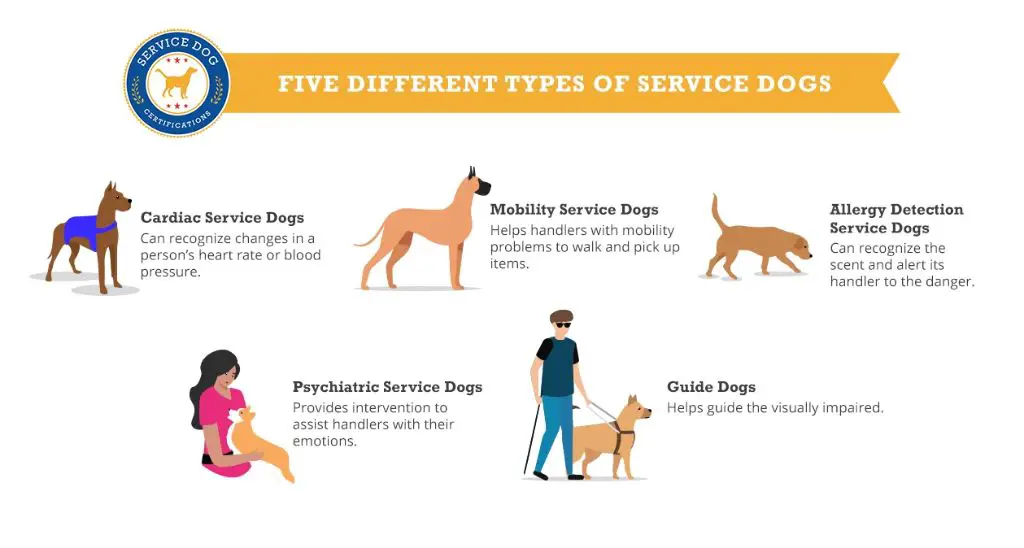Introduction
Dogs provide unparalleled companionship, joy and health benefits for their human caretakers. While dog ownership has always made intuitive sense for many, modern scientific research is now demonstrating why humans and dogs have such a uniquely special connection. Acquiring a dog means welcoming a loyal companion who will enjoy life’s simple pleasures with you. The latest studies reveal that dogs also provide measurable physical and mental health advantages. From stress relief and social connection to heart health and beyond, the evidence is clear – having a dog is good for humans. This article will examine several key ways dogs scientifically improve human lives.
Dogs Reduce Stress
Studies have revealed that interacting with dogs physiologically induces lower levels of the stress hormone cortisol and triggers the release of oxytocin, the hormone associated with social bonding and affection. Cortisol is associated with stress and anxiety, while oxytocin can produce feelings of relaxation and well-being. The oxytocin response produced through human-dog interactions can help lower blood pressure and heart rates, reducing anxiety and stress levels. The decrease in cortisol and increase in oxytocin leads to physiological changes that help calm the body and mind. Pet owners have been found to have lower baseline levels of cortisol, likely because they experience these positive hormonal shifts through regular interactions with their dog that ultimately reduce their stress over time.
Dogs Encourage Exercise
Getting enough physical activity is crucial for physical and mental health, yet many people struggle to exercise regularly. Having a dog can provide the motivation and companionship that makes establishing an exercise routine easier. Studies show that dog owners tend to walk more, exercise more frequently, and are more physically active overall than people without dogs.
One study found that dog owners walked an average of 300 minutes per week, while non-dog owners only walked an average of 168 minutes per week – almost half as much. Walking a dog requires going outside multiple times per day, meaning dog owners are less sedentary than those without a canine companion. The American Heart Association recommends at least 150 minutes of moderate exercise like brisk walking per week, a goal that dog owners are more likely to achieve.
Beyond just walking, people with dogs tend to engage in more physically demanding activities overall. Playing games like fetch, going on hikes, and even simply keeping up with an energetic pup gets owners moving and burning calories. For those looking to get in shape or maintain a healthy weight, a dog can provide the encouragement to stick to a regular workout schedule.
Dogs Provide Companionship
A dog’s ability to alleviate loneliness and provide unconditional love is proven. The companionship of a dog provides a source of comfort and someone to care for, which can help stave off feelings of isolation. For people living alone, owning a dog reduces feelings of loneliness and boosts social interactions with other people.

Dogs are loving animals that bond strongly with their owners. They offer constant friendship without judgement or conditions. Having someone who is always excited to see you and eager to spend time with you provides a powerful antidote to loneliness. Pets give purpose to their owners’ lives by creating a caring routine and meaningful relationship.
The affectionate nature of dogs makes them ideal companions. Their desire for human interaction reduces feelings of isolation. Dogs encourage their owners to get out for daily walks, creating opportunities for socialization, exercise, and taking care of one’s health.
For older adults and people with health conditions that may limit mobility or social circles, dog companionship provides mental and physical benefits that improve quality of life and reduce depression. The emotional support dogs provide can be therapeutic.
Overall, dogs are loving companions that provide friendship, comfort, and joy. Their ability to alleviate loneliness is unmatched.
Dogs Support Mental Health
Studies have repeatedly shown that owning a dog may provide significant benefits for your mental health. Dog owners tend to have lower levels of anxiety and depression.
Several theories may explain why living with a dog helps reduce symptoms of these common mental health conditions. Caring for a dog encourages routine and creates a sense of purpose each day. The companionship of a dog provides continual social support and interaction. Participating in walks and play with your dog also increases exercise, which is known to support mental well-being. Perhaps most importantly, dogs provide unconditional love and affection which can have a profound impact on anxious or depressed minds.
Simply petting a dog has been shown to increase levels of serotonin and dopamine, which are neurotransmitters associated with mood regulation. Service dogs are even being trained now to detect and respond to anxiety and panic attacks. The evidence strongly suggests that owning a dog can lead to measurable reductions in stress, anxiety, and feelings of loneliness or isolation. If you suffer from a mental health condition or want to be proactive about maintaining your mental wellness, adopting a dog may be an excellent step. Their joyful presence and constant companionship can provide comfort and stability for your daily life.
Dogs Help Monitor Health
One of the most remarkable abilities of dogs is their capacity to detect changes in human health and wellbeing. There are numerous reports of dogs alerting owners to medical emergencies by detecting subtle changes before symptoms become apparent.
Dogs have an exceptionally keen sense of smell, far superior to humans. They can be trained to detect very low concentrations of volatile organic compounds, which are released by the human body in their breath, sweat, and skin. Dogs can pick up on the smell of different biomarkers which allow them to sense changes in blood sugar levels, seizures, migraines, and more.
For people with diabetes, a dog can be trained to detect low blood sugar by smell and alert their human to take needed insulin. There are many reports of diabetic dog owners being awoken by their pet during a nighttime hypoglycemic episode. This has prevented countless emergency situations.
Dogs have also been shown to detect seizures and migraines before onset through smelling subtle bodily changes imperceptible to humans. Many people with epilepsy have been alerted by their dogs minutes before having a seizure, allowing them to get to safety and prepare.
Service dogs are often trained specifically to assist people with health conditions like diabetes, seizures, anxiety, PTSD and more. Their acute sense of smell and ability to pick up on subtle cues offers a profound benefit to monitoring health.
Beyond formal service dog training, ordinary household dogs also frequently demonstrate an awareness of human health needs. Having a companion that stays alert to your wellbeing provides an invaluable service.

Dogs Aid Social Connections
Dogs can help their owners establish new connections and improve their social life. Multiple studies have shown that dog owners are more likely to engage in casual conversations with neighbors and meet new people while out walking their dog. Dogs provide a shared interest to easily start conversations with strangers or acquaintances. Dog walking areas like parks and trails provide natural opportunities for dog owners to interact with other pet owners. Dog owners have more social interactions in the neighborhood and local community due to their daily dog walking routine. Simply owning a dog leads to unexpected encounters and conversations that would be unlikely to happen otherwise. Dogs act as social catalysts and icebreakers to connect with others. The friendly presence of a dog makes people more approachable and easier to strike up a conversation.
Dogs Benefit Child Development
Having a dog can dramatically impact a child’s life by providing a playmate, source of comfort, and even a mentor. Studies have shown that children in families with dogs have stronger social skills and are more prepared for life. The responsibility of caring for a pet teaches children compassion, and dogs model unconditional love. As children develop relationships with their dogs, they learn about friendship, empathy, and emotional intelligence.
Research has demonstrated that dogs can help children build self-esteem and confidence. Dogs provide constant encouragement and comfort when children face difficult challenges and stressful situations. With a dog by their side, children become more resilient and develop better coping mechanisms. Having a dog also teaches children responsibility and how to care for others.
The joy and laughter that dogs bring to a child’s life should not be underestimated. Playing and cuddling with a dog relieves anxiety and stress in children. Dogs give them something positive to focus on during hard times. Several studies have even shown that children who grow up with dogs have lower rates of depression and anxiety later in life.

Dogs Improve Heart Health
Numerous studies have shown that dog ownership provides significant benefits for heart health. Petting a dog has been proven to lower blood pressure and heart rate. One major study found that dog owners who survived a heart attack had a significantly higher survival rate compared to non-dog owners.
Researchers believe that the companionship of a pet along with the physical activity involved in walking and playing with a dog contribute to these cardiovascular benefits. Dog owners tend to have lower cholesterol, triglycerides, and blood sugar levels as well. The emotional bond with a loving pet may also reduce stress and promote relaxation, further supporting heart health.
There are measurable differences between dog owners and the general population when it comes to heart disease risks. Dog owners are less likely to be obese, have high blood pressure, or suffer from diabetes. All of these factors lead to better cardiovascular outcomes. Owning a dog motivates people to exercise more and provides stress relief, both of which keep the heart healthy.
Conclusion
This article has explored the many science-backed benefits of dog companionship. The key takeaways include:
Dogs reduce stress by lowering cortisol and increasing oxytocin. Petting a dog can provide relaxation and comfort.
Dogs encourage exercise by needing walks and playtime. Dog owners tend to be more physically active.
Dogs provide companionship and emotional support. They can decrease feelings of loneliness and isolation.
Dogs support mental health by reducing anxiety, elevating moods, and giving a sense of purpose.
Dogs help monitor health by responding to issues like seizures or low blood sugar. Some can be trained as service animals.
Dogs aid social connections through dog walks, dog parks, and introductions. They can be a social lubricant.
Dogs benefit child development by teaching responsibility, empathy, and social skills. Children with dogs have less behavioral issues.
Dogs improve heart health by decreasing blood pressure, cholesterol, and triglycerides. Dog owners have better cardiovascular outcomes.

In summary, scientific research clearly shows multiple benefits to having a dog companion. Dogs can support both physical and mental health in children, adults, families, and communities.